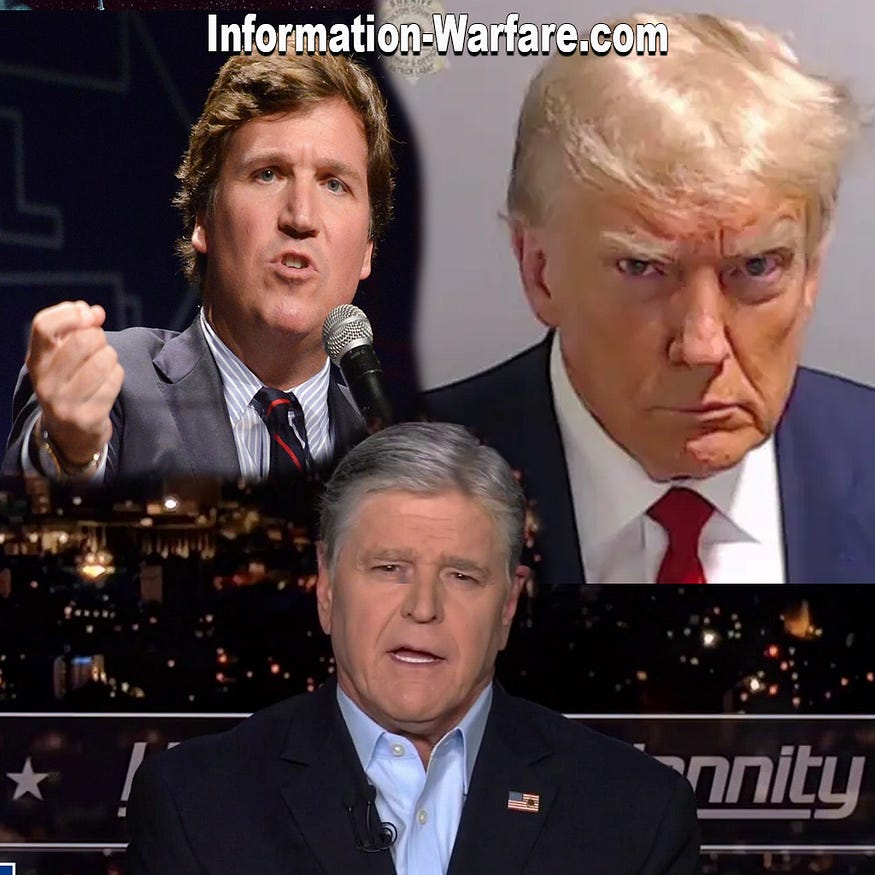The Echo Chamber of Useful Idiots
Tucker Carlson, Sean Hannity, and Donald Trump’s Role in Information Warfare
Introduction: In the realm of modern information warfare, the concept of “useful idiots” — individuals who unwittingly advance the agendas of foreign adversaries — has become increasingly relevant. The term, often attributed to Lenin, originally described Westerners who endorsed Soviet propaganda without understanding its implications. Today, it applies to certain media figures and political leaders who, through their rhetoric and actions, play into the hands of authoritarian regimes like Russia’s.
Tucker Carlson: Amplifying Kremlin Narratives Tucker Carlson, a prominent media personality, exemplifies this phenomenon. His recent interview with Vladimir Putin serves as a case study in how seemingly innocuous questioning can be weaponized to bolster foreign propaganda. Carlson’s questions were tailored to reinforce the ideological obsessions of his audience, focusing on themes like government overreach, Christian values, and American decline. In doing so, he provided a platform for Putin to subtly reinforce these narratives, thereby lending credibility to the Russian leader’s disinformation campaigns.
Carlson’s relationship with Russian propaganda is not new. Over the years, he has frequently echoed Kremlin talking points, from questioning the legitimacy of U.S. support for Ukraine to downplaying Russian aggression. This alignment has made Carlson a valuable asset in Russia’s information warfare strategy, where his influence over a large segment of the American population helps sow division and mistrust in U.S. institutions.
Sean Hannity: The Echo Chamber Reinforced Sean Hannity, another influential media figure, plays a complementary role to Carlson. While Carlson often frames his narratives with a veneer of skepticism, Hannity’s approach is more direct, acting as a mouthpiece for the Trump administration’s messaging. Hannity’s unwavering support for Trump, coupled with his repeated attacks on the so-called “deep state,” serves to reinforce the echo chamber that Carlson helps to create.
Hannity’s broadcasts often blur the line between journalism and partisan advocacy, further entrenching the divisions within American society. By amplifying Trump’s rhetoric and framing it as the unvarnished truth, Hannity contributes to a media environment where facts are secondary to loyalty and where dissenting voices are marginalized. This dynamic is a key element of information warfare, where the goal is not just to misinform but to erode the very notion of objective truth.
Donald Trump: The Catalyst for Division Donald Trump’s role in this ecosystem cannot be understated. As a former president, Trump has had a unique ability to shape the media landscape and drive the narrative within right-wing circles. His attacks on the media, labeling it as “fake news,” have delegitimized traditional sources of information, making his followers more susceptible to alternative narratives propagated by figures like Carlson and Hannity.
Trump’s relationship with authoritarian leaders, including his admiration for Putin, has further muddied the waters. His public statements often align with the interests of these leaders, whether it’s questioning NATO, criticizing allies, or expressing skepticism about election integrity. By doing so, Trump not only undermines U.S. foreign policy but also provides ammunition for foreign disinformation campaigns aimed at weakening Western democracies.
Conclusion: The Dangers of Media Echo Chambers The convergence of these three figures — Carlson, Hannity, and Trump — creates a powerful echo chamber that is not only resistant to outside perspectives but actively hostile to them. This environment is fertile ground for the spread of disinformation, as it encourages insularity and reinforces pre-existing biases. In the context of information warfare, such echo chambers are a significant threat to democratic societies, as they can be exploited by foreign adversaries to sow discord and weaken national cohesion.
The phenomenon of “useful idiots” in modern media is a cautionary tale about the dangers of selective information consumption and the need for vigilance in safeguarding the integrity of public discourse. As we navigate the complexities of the digital age, it is crucial to recognize the role that media figures and political leaders play in shaping our perceptions and to hold them accountable for the consequences of their actions.


